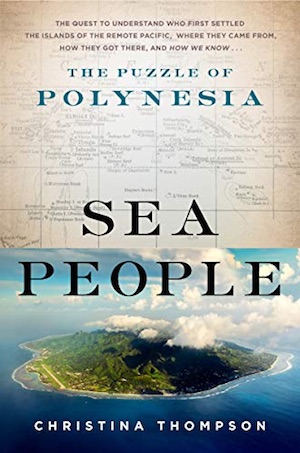


His memoir interweaves bold surgical feats on these sojourns in hell with his own psychological journey, a chronicle equally soaked in blood and insight.

Her outstanding study brims with detail, not least on Polynesian wayfinding - holistic expertise based on myriad ‘readings’ of bird, cloud, light and wave behaviour.įor more than 25 years, surgeon David Nott has lived periodically “in a liminal zone where most people have neither been nor want to go”: fields of war from Afghanistan to Bosnia. How did early Polynesians - united by a language family, culture, skills - navigate such vastness, and colonize islands as far-flung as Hawaii and New Zealand? In parsing that prehistory, Christina Thompson found herself piecing together biological, archaeological, geographical, anthropological and linguistic evidence from oral traditions, early European accounts and recent science. The Pacific Ocean covers more than 30% of Earth’s surface. Along with exploring musicality studies on species from rock doves to koi carp, he lab-hops to learn how male canaries court with thrilling trills how zebra finches use the entire sound spectrum to gather information how a California sea lion perceives beats (notably, in Earth, Wind & Fire’s 1979 song ‘Boogie Wonderland’) and more. Inspired by the concept, musical-cognition researcher Henkjan Honing launched a quest to test it. In his 1871 The Descent of Man, Charles Darwin speculated that all animals might be biologically capable of perceiving musical cadence and rhythm. A powerful call to bust the myths and bridge the gap. In areas as diverse as medicine, labour and sanitation, many findings ignore half the population because of bad trial design (anatomically incorrect crash-test dummies, male-only drug-testing), algorithmic bias (say, in translation software or image data sets) or simple erasure of women from the historical record. So argues journalist Caroline Criado Perez in this pointed analysis, revealing how using men as the default in research has serious real-world impacts on women. We live in a vast welter of data - and it is riddled with gender bias. Caroline Criado Perez Chatto & Windus (2019)


 0 kommentar(er)
0 kommentar(er)
